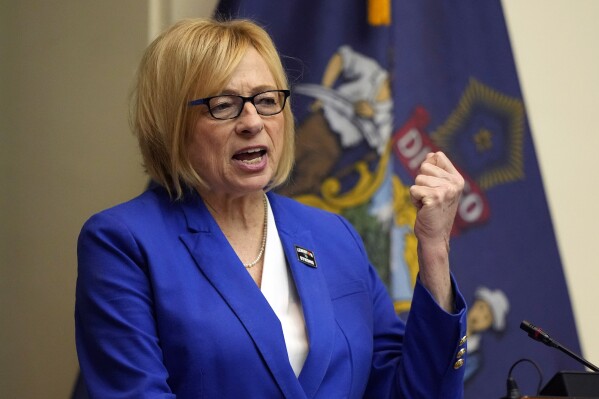US regulators maintain fishing quota for valuable baby eels, even as Canada struggles with poaching
PORTLAND, Maine (AP) — U.S. regulators decided Wednesday to allow American fishermen to harvest thousands of pounds of valuable baby eels in the coming years, even as authorities have shuttered the industry in Canada while they grapple with poaching.
Baby eels, also called elvers, are harvested from rivers and streams by fishermen every spring. The tiny fish are sometimes worth more than $2,000 per pound because of their high value to Asian aquaculture companies.
The Atlantic States Marine Fisheries Commission decided Wednesday that U.S. fishermen will be allowed to harvest a little less than 10,000 pounds (4,536 kilograms) of the eels per year. That quota, which holds current levels, will stand through at least 2027 and could be extended beyond that year, the panel decided.
The decision came less than two months after Fisheries and Oceans Canada shut down the elver fishing season in the Maritime provinces for this year. It said in a statement that illegal fishing, and harassment and threats between harvesters and fishery officers, were among the reasons for the closure.
U.S. fishermen made the case prior to Wednesday’s commission decision that they have been good stewards of the valuable fish and deserve a larger quota, but regulators kept the quota the same. Maine is the only American state that allows commercial-scale fishing of elvers.



“This is the most restricted fishery in Maine and no one can get away with anything, and they should allow us to fish,” said Darrell Young, founder of the Maine Elver Fishermen Association, before the meeting.
Elvers are raised to maturity so they can be used as food. Some return to the U.S. for use in Japanese restaurants.
They are worth so much in part because worldwide supplies of eels have diminished in recent decades. That has led to criticism from environmental groups that believe eel fishing is unsustainable.
The worldwide eel fishing industry has also long been beset by poaching and illegal sales. In April, Canadian fishery officers arrested five Maine fishermen in Nova Scotia for breaking fishing laws and seized about 7.5 pounds (3.4 kilograms) of elvers, according to a statement from Fisheries and Oceans Canada.
Maine authorities have managed to thwart poaching in the state using new controls including a swipe card system meant to deter illegal sales. Poaching in Canada “threatens this valuable resource and fishery on both sides of the border,” said Jeff Nichols, a spokesperson for the Maine Department of Marine Resources.
The commission’s decision to keep the state’s elver quota at its current level is “good news for Maine’s elver harvesters, who earn nearly $20 million a year from the vital fishery,” Nichols said.
Maine fishermen are about 80% of the way through this year’s elver quota. The elvers were selling for a little less than $1,200 per pound as of Wednesday. That was cheaper than the last three years, but more expensive than they typically sold for prior to 2012.
Disclaimer: The copyright of this article belongs to the original author. Reposting this article is solely for the purpose of information dissemination and does not constitute any investment advice. If there is any infringement, please contact us immediately. We will make corrections or deletions as necessary. Thank you.
